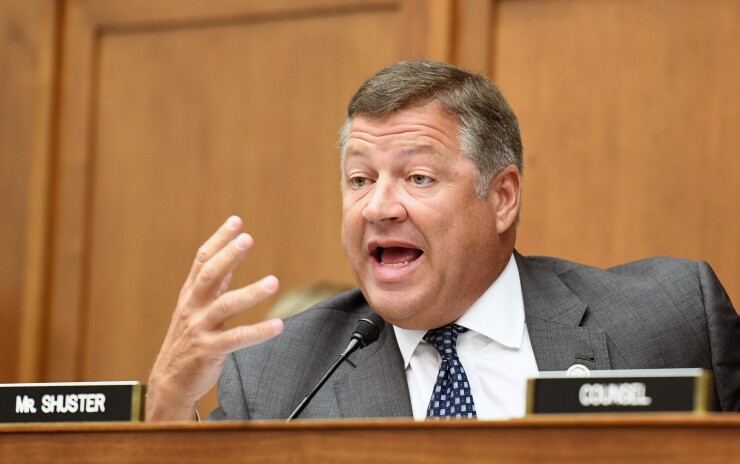WASHINGTON – States and localities trying to finance large water and sewer projects are winners under new funding legislation that President Trump signed into law Tuesday.
America’s Water Infrastructure Act of 2018, which was approved by Congress earlier this month, reauthorizes the Water Infrastructure Finance and Innovation Act, or WIFIA, at $50 million, and removes it from pilot program status. It also reauthorizes the Drinking Water State Revolving Fund for the first time since 2003, providing $1.95 billion by the third year of the three-year authorization.
Both programs assist local governments in financing water project, and can be used both in conjunction with one another and with tax-exempt bonds.
“The reauthorization of WIFIA at $50 million and the fact that it is no longer a ‘pilot’ is a significant milestone for the program and a great victory for the entire water sector,” said David LaFrance, chief executive officer at the American Water Works Association.
WIFIA, created in 2014 under the Obama administration, provides low-cost loans and loan guarantees to eligible borrowers for water and wastewater projects. It is designed to work in conjunction with bonds and other funding sources and can provide up to 45% of funding for a project.
WIFIA previously had received $25 million in funding, including an additional $8 million in the Consolidated Appropriations Act of 2017 that President Donald Trump signed into law in May 2017.
The drinking water SRFs in all 50 states and Puerto Rico function like infrastructure banks by providing low interest loans for drinking water infrastructure projects. As money is paid back into the state’s revolving loan fund, the state makes new loans for other projects. These recycled repayments of loan principal and interest earnings allow the state's DWSRF to “revolve” over time.

While the Environmental Protection Agency administers the broader DWSRF program, states administer their individual programs. They can use funds not only to provide loans but also to guarantee local debt, purchase bond insurance, and refinance projects. The new law provides a total DWSRF authorization of some $4.4 billion over three years.
The newly-minted law is a combination of two-year water resources development legislation and a Safe Drinking Water Act bill that the House produced. It also provides for federal investment in, and natural disaster protection of, coastal and waterway infrastructure.
Rep. Bill Shuster, R-Pa., who chairs the House Committee on Transportation and Infrastructure but is retiring at the end of this term, said the law represents “essential federal commitments” to improving water infrastructure.
In signing the bill into law, Trump touted it as an initial step in his plan to rebuild U.S. infrastructure, an issue he campaigned on in the prelude to the 2016 election.
“As a candidate, I called for a great rebuilding of America’s crumbling infrastructure,” Trump said. Today, we’re taking another major step toward that goal. Very important.”





